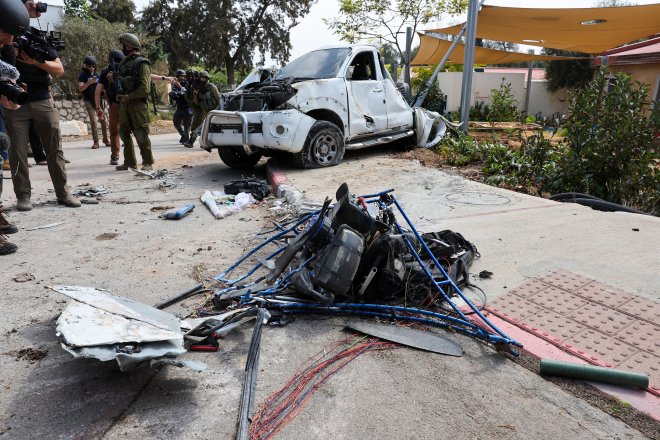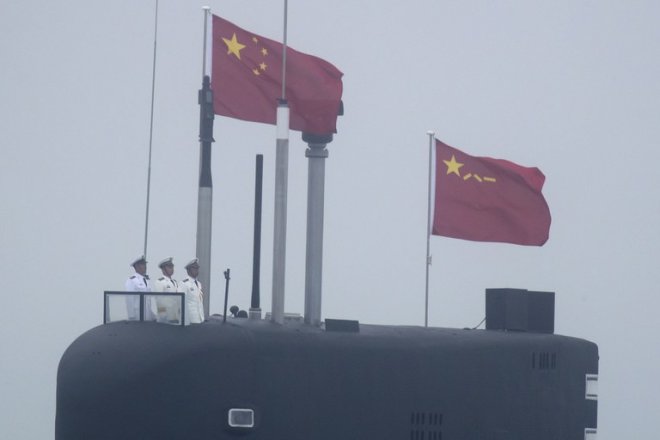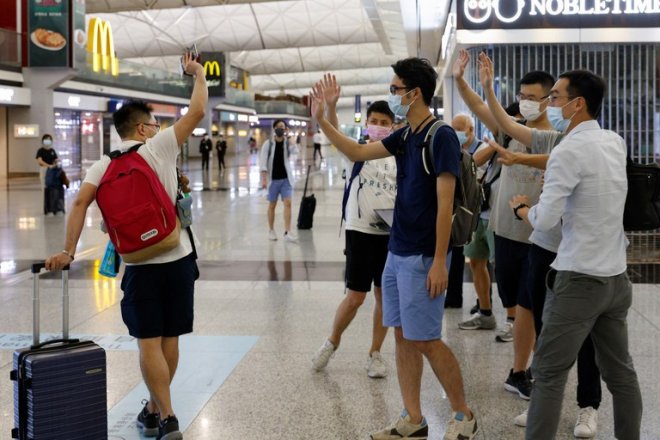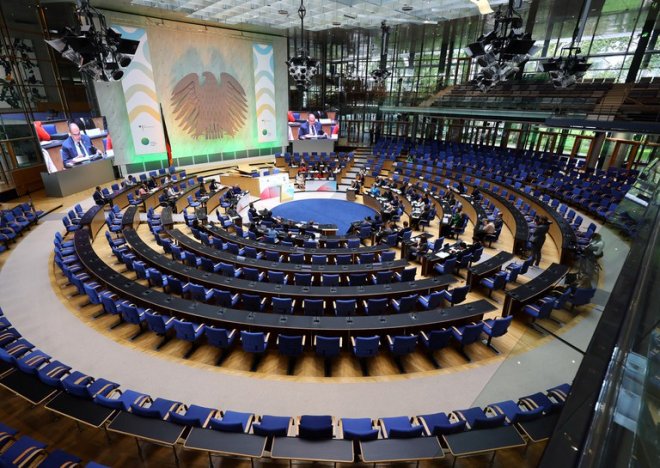Rugby match anthem gaffe prompts police to probe 'national security law breach'
Hong Kong police on Tuesday announced a criminal investigation into the playing of "Glory to Hong Kong," a banned song linked to the 2019 protest movement, at a rugby match in South Korea.
"The Organized Crime and Triad Bureau is dealing with the case," the government said in a statement on Tuesday. "Police will take follow-up actions seriously in accordance with the law on whether the incident has breached the National Anthem Ordinance or any other legislation of Hong Kong, including the Hong Kong National Security Law."
The national security law, which heralded a citywide crackdown on dissent and mass exodus of people in the wake of the 2019 protests, bans public speech or actions deemed likely to "incite hatred" of the government, while the national anthem law bans any speech or actions deemed to be disrespectful to the Chinese national anthem.
In a scene that went viral on social media in Hong Kong, "Glory to Hong Kong" blared out over the sound system before a rugby match between Hong Kong and South Korea played just outside of Seoul on Sunday. International sporting protocol would require China’s communist national anthem, the March of the Volunteers, to be played instead.
The Hong Kong government said the song is "closely associated with violent protests and the [Hong Kong] "independence" movement," although the song calls for freedom and democracy rather than independence.
In September, a 43-year-old man was arrested for "sedition" after playing Glory to Hong Kong on the harmonica at Queen Elizabeth II’s funeral vigil in Hong Kong.
The police announcement came as match organizers Asian Rugby blamed the anthem gaffe on "an innocent mistake" by an intern, government broadcaster Radio Television Hong Kong reported on Tuesday.
"But questions remain about why the song, associated with violent protests in Hong Kong in 2019, ended up in a folder where all national anthems were stored," the station"s report said.
Asia Rugby’s interim CEO, Benjamin van Rooyen, told reporters that the Hong Kong Rugby Union had provided the correct audio file to Asia Rugby when the Hong Kong rugby team played in Bangkok last month, and that the Korea Rugby Union should have had the correct anthem on file after Hong Kong played a match in the country in July.
"This was somebody who was provided with a song ... and somebody pressed play. That person has no understanding of the politics of the world," van Rooyen told an online news conference in comments quoted by Radio Television Hong Kong. "I don’t think there were any ulterior motives in any of this. This was a simple human error."
The Hong Kong Rugby Union said future errors of this type would mean the Hong Kong team"s "immediate withdrawal from competition."
"Chilling effect"
Last week, Hong Kong citizen journalist Paula Leung was jailed for three months after she pleaded guilty to "insulting the national anthem" by waving a colonial-era Hong Kong flag at a shopping mall that was screening a medal ceremony for Hong Kong fencer Edgar Cheung on July 26, 2021.
Australian lawyer and rights activist Kevin Yam said Hong Kong courts are imposing increasingly harsh sentences on cases involving China"s national symbols.
"There were a few cases more than 10 years ago now involving the national flag law, but they only wound up with fines of around 1,000 or a few hundred Hong Kong dollars," Yam told RFA. "Nowadays, you can go to jail for booing the national anthem."
"This is a terrible thing, and it will have a chilling effect, and shows how Hong Kong is moving backwards, and not with the times," he said. "Things are different under the national security law, and freedom and human rights have all gone into reverse."
Sociologist Chung Kim-wah said such measures can only ban public expressions of anti-government feeling, not the feelings themselves.
"They are now using various laws to impose the heaviest possible sentences, so that nobody will dare to resist or spread discontent with the regime," Chung told RFA. "Beijing ... wants Hong Kong people to refrain from expressing themselves so that they eventually get used to it, and can only obey [the authorities]."
"But stopping them expressing themselves won"t mean they accept all of this; it will just fuel greater discontent in more people."
In 2019, when protesters began defending peaceful demonstrators against riot police firing tear gas, non-lethal bullets and occasionally live ammunition with Molotov cocktails, bricks and other makeshift weapons, Hong Kong fans chanted "Freedom for Hong Kong" and booed the Chinese national anthem at a soccer match in South Korea.
They waved banners that read "Liberate Hong Kong, revolution in our time!" a popular protest slogan that was banned under the national security law, and sang "Glory to Hong Kong."
Hong Kong passed a national anthem law in June 2020 banning "insults" to the Chinese national anthem after Hong Kong soccer fans repeatedly booed, yelled Cantonese obscenities or turned their backs when it was played at matches.
Hong Kong second-in-command Chan Kwok-ki met with the South Korean Consul General on Monday to protest against Sunday"s incident.
"The [Hong Kong government] raises strong objections to [Asian Rugby] for its inability ... to prevent the incident from happening," Chan was quoted as saying in a government statement. He said the Hong Kong Rugby Union would launch its own investigation to study ways to ensure the incident is never repeated.
Translated and edited by Luisetta Mudie.
[圖擷取自網路,如有疑問請私訊]
"The Organized Crime and Triad Bureau is dealing with the case," the government said in a statement on Tuesday. "Police will take follow-up actions seriously in accordance with the law on whether the incident has breached the National Anthem Ordinance or any other legislation of Hong Kong, including the Hong Kong National Security Law."
The national security law, which heralded a citywide crackdown on dissent and mass exodus of people in the wake of the 2019 protests, bans public speech or actions deemed likely to "incite hatred" of the government, while the national anthem law bans any speech or actions deemed to be disrespectful to the Chinese national anthem.
In a scene that went viral on social media in Hong Kong, "Glory to Hong Kong" blared out over the sound system before a rugby match between Hong Kong and South Korea played just outside of Seoul on Sunday. International sporting protocol would require China’s communist national anthem, the March of the Volunteers, to be played instead.
The Hong Kong government said the song is "closely associated with violent protests and the [Hong Kong] "independence" movement," although the song calls for freedom and democracy rather than independence.
In September, a 43-year-old man was arrested for "sedition" after playing Glory to Hong Kong on the harmonica at Queen Elizabeth II’s funeral vigil in Hong Kong.
The police announcement came as match organizers Asian Rugby blamed the anthem gaffe on "an innocent mistake" by an intern, government broadcaster Radio Television Hong Kong reported on Tuesday.
"But questions remain about why the song, associated with violent protests in Hong Kong in 2019, ended up in a folder where all national anthems were stored," the station"s report said.
Asia Rugby’s interim CEO, Benjamin van Rooyen, told reporters that the Hong Kong Rugby Union had provided the correct audio file to Asia Rugby when the Hong Kong rugby team played in Bangkok last month, and that the Korea Rugby Union should have had the correct anthem on file after Hong Kong played a match in the country in July.
"This was somebody who was provided with a song ... and somebody pressed play. That person has no understanding of the politics of the world," van Rooyen told an online news conference in comments quoted by Radio Television Hong Kong. "I don’t think there were any ulterior motives in any of this. This was a simple human error."
The Hong Kong Rugby Union said future errors of this type would mean the Hong Kong team"s "immediate withdrawal from competition."
"Chilling effect"
Last week, Hong Kong citizen journalist Paula Leung was jailed for three months after she pleaded guilty to "insulting the national anthem" by waving a colonial-era Hong Kong flag at a shopping mall that was screening a medal ceremony for Hong Kong fencer Edgar Cheung on July 26, 2021.
Australian lawyer and rights activist Kevin Yam said Hong Kong courts are imposing increasingly harsh sentences on cases involving China"s national symbols.
"There were a few cases more than 10 years ago now involving the national flag law, but they only wound up with fines of around 1,000 or a few hundred Hong Kong dollars," Yam told RFA. "Nowadays, you can go to jail for booing the national anthem."
"This is a terrible thing, and it will have a chilling effect, and shows how Hong Kong is moving backwards, and not with the times," he said. "Things are different under the national security law, and freedom and human rights have all gone into reverse."
Sociologist Chung Kim-wah said such measures can only ban public expressions of anti-government feeling, not the feelings themselves.
"They are now using various laws to impose the heaviest possible sentences, so that nobody will dare to resist or spread discontent with the regime," Chung told RFA. "Beijing ... wants Hong Kong people to refrain from expressing themselves so that they eventually get used to it, and can only obey [the authorities]."
"But stopping them expressing themselves won"t mean they accept all of this; it will just fuel greater discontent in more people."
In 2019, when protesters began defending peaceful demonstrators against riot police firing tear gas, non-lethal bullets and occasionally live ammunition with Molotov cocktails, bricks and other makeshift weapons, Hong Kong fans chanted "Freedom for Hong Kong" and booed the Chinese national anthem at a soccer match in South Korea.
They waved banners that read "Liberate Hong Kong, revolution in our time!" a popular protest slogan that was banned under the national security law, and sang "Glory to Hong Kong."
Hong Kong passed a national anthem law in June 2020 banning "insults" to the Chinese national anthem after Hong Kong soccer fans repeatedly booed, yelled Cantonese obscenities or turned their backs when it was played at matches.
Hong Kong second-in-command Chan Kwok-ki met with the South Korean Consul General on Monday to protest against Sunday"s incident.
"The [Hong Kong government] raises strong objections to [Asian Rugby] for its inability ... to prevent the incident from happening," Chan was quoted as saying in a government statement. He said the Hong Kong Rugby Union would launch its own investigation to study ways to ensure the incident is never repeated.
Translated and edited by Luisetta Mudie.
[圖擷取自網路,如有疑問請私訊]
|
本篇 |
不想錯過? 請追蹤FB專頁! |
| 喜歡這篇嗎?快分享吧! |
相關文章
AsianNewsCast
















